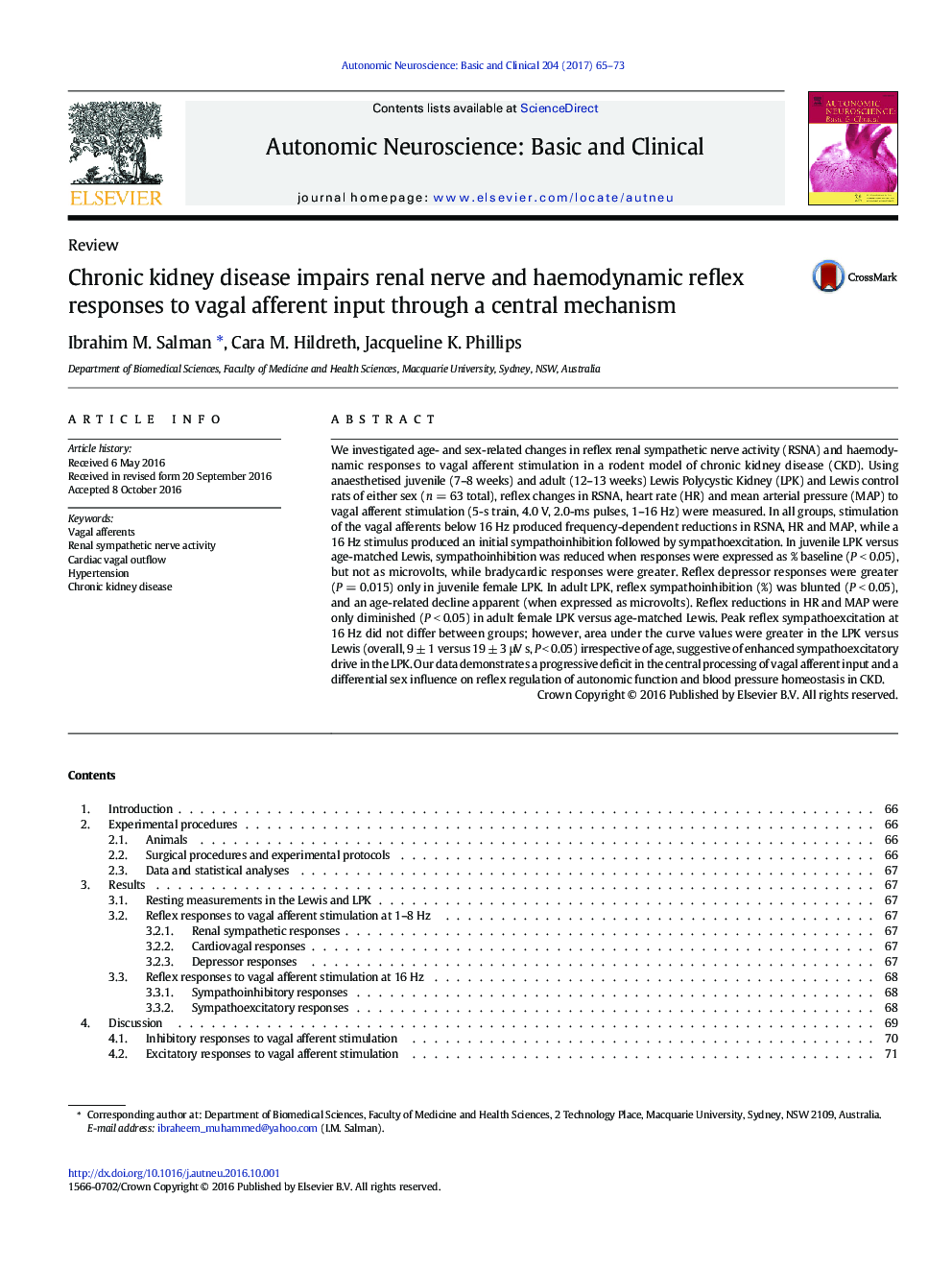| Article ID | Journal | Published Year | Pages | File Type |
|---|---|---|---|---|
| 5625974 | Autonomic Neuroscience | 2017 | 9 Pages |
â¢Impaired reflex control of autonomic outflows is a hallmark of autonomic dysfunction in CKD.â¢Altered central processing of vagal afferent input could underlie autonomic dysfunction in CKD.â¢We demonstrated impaired central integration of vagal afferent neurotransmission in CKD.â¢Central deficits promoted differential deteriorations in autonomic outflows to the kidney, heart and vasculature.â¢A critical involvement of a new central mechanism in the pathogenesis of autonomic dysfunction in CKD was recognized.
We investigated age- and sex-related changes in reflex renal sympathetic nerve activity (RSNA) and haemodynamic responses to vagal afferent stimulation in a rodent model of chronic kidney disease (CKD). Using anaesthetised juvenile (7-8 weeks) and adult (12-13 weeks) Lewis Polycystic Kidney (LPK) and Lewis control rats of either sex (n = 63 total), reflex changes in RSNA, heart rate (HR) and mean arterial pressure (MAP) to vagal afferent stimulation (5-s train, 4.0 V, 2.0-ms pulses, 1-16 Hz) were measured. In all groups, stimulation of the vagal afferents below 16 Hz produced frequency-dependent reductions in RSNA, HR and MAP, while a 16 Hz stimulus produced an initial sympathoinhibition followed by sympathoexcitation. In juvenile LPK versus age-matched Lewis, sympathoinhibition was reduced when responses were expressed as % baseline (P < 0.05), but not as microvolts, while bradycardic responses were greater. Reflex depressor responses were greater (P = 0.015) only in juvenile female LPK. In adult LPK, reflex sympathoinhibition (%) was blunted (P < 0.05), and an age-related decline apparent (when expressed as microvolts). Reflex reductions in HR and MAP were only diminished (P < 0.05) in adult female LPK versus age-matched Lewis. Peak reflex sympathoexcitation at 16 Hz did not differ between groups; however, area under the curve values were greater in the LPK versus Lewis (overall, 9 ± 1 versus 19 ± 3 μV s, P < 0.05) irrespective of age, suggestive of enhanced sympathoexcitatory drive in the LPK. Our data demonstrates a progressive deficit in the central processing of vagal afferent input and a differential sex influence on reflex regulation of autonomic function and blood pressure homeostasis in CKD.
